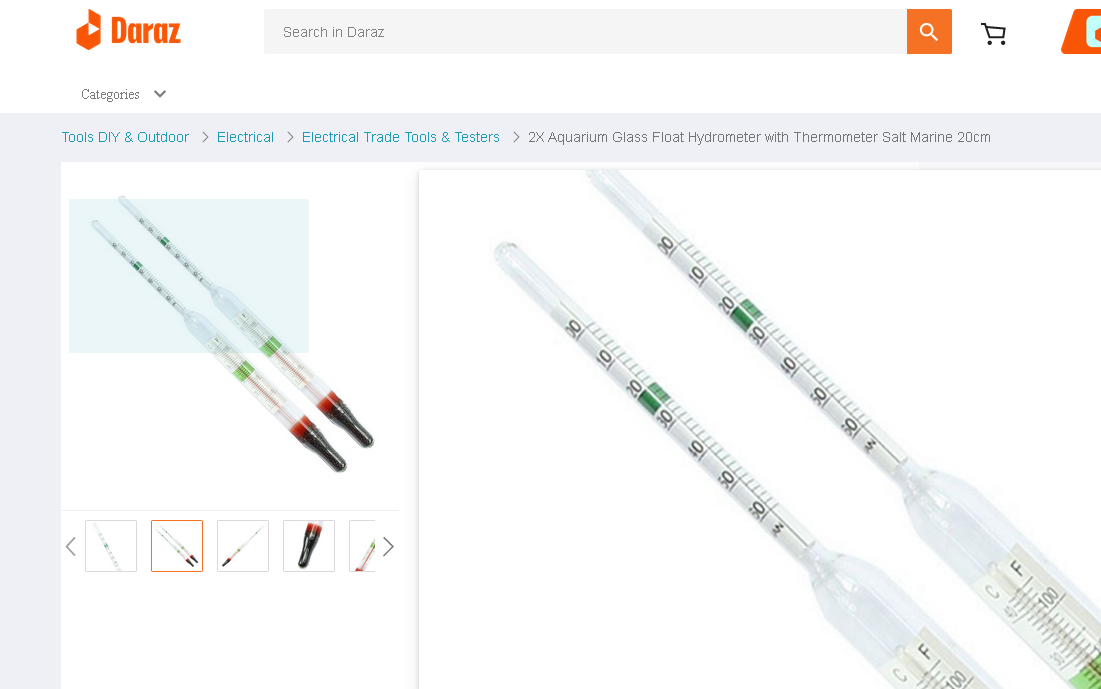It's just the hydrometer for alcohol measuring isn't available.
When fermenting beer (or wine, cider, mead, etc.) we do NOT measure alcohol.*
Instead, we measure the
change in gravity (in SG or Brix), which is an indication of its sugar content.
For that we use a hydrometer or a refractometer (for sugar, not salt, or other solutes such as antifreeze, etc.).
The OG (original gravity) is the gravity of the sugar solution (an indication of sugar content)
before fermentation.
The FG (final gravity), the gravity
after fermentation has completed.
With these 2 numbers (OG and FG), expressed in SG (e.g., 1.016) we can calculate alcohol content:
(OG - FG) * 131.25 = % Alcohol by volume (%ABV)
Or even simpler, use a calculator such as this one:
https://www.brewersfriend.com/abv-calculator/
The equations used and the theory behind those calculators is here:
https://www.brewersfriend.com/2011/06/16/alcohol-by-volume-calculator-updated/
On a side note...
I've made some alcohol last year [...]
Look around here, there are not many homebrewers who talk like that, and we tend to frown upon those who do...
We brew beer, make wine, cider, mead, etc. We are
proud of the homebrew we make. Believe it or not, making alcohol is NOT the sole or even main reason we homebrew, I think I'm speaking for most of us.
For most homebrewers, alcohol is considered a byproduct of fermentation. Sure, alcohol helps carrying flavor, aroma, and such and it may give you a little buzz, comes with the territory, we don't shy away from it.
IOW, the majority of homebrewers enjoy the fermented products we make. We try perfecting our techniques to make our homebrew efforts better, such as flavor, aroma, color, foam, mouthfeel, sensation, etc., improving overall quality. Alcohol just comes with it, but we're not solely homebrewing for the buzz.
I understand, in countries where alcohol consumption is outlawed, making some for personal consumption can be the holy grail. Shhh, hush hush!
And yeah, without that one would also miss experiencing those awesome flavors, aromas, mouthfeel, and other sensations that come with fermented products. Heck, even a little buzz can be needed at times, or is just a welcome side effect.
* Those who distill do measure alcohol content
directly in a similar way we measure sugar content (gravity).





















































![Craft A Brew - Safale BE-256 Yeast - Fermentis - Belgian Ale Dry Yeast - For Belgian & Strong Ales - Ingredients for Home Brewing - Beer Making Supplies - [3 Pack]](https://m.media-amazon.com/images/I/51bcKEwQmWL._SL500_.jpg)




